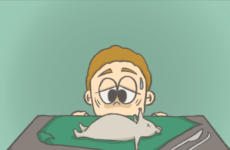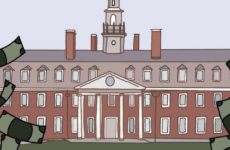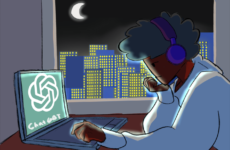From nightfall on Wednesday September 20 to nightfall on Friday September 22, Jews around the world brought in the new year of 5778. Rosh Hashanah, or Head of the Year, is regarded as one of the most holy holidays in the Jewish tradition, but its meaning transcends a simple celebration of time passing. Observing Rosh Hashanah involves not only welcoming the new year but also reflecting on the year that has passed, and for Jewish people around the world, this reflection hasn’t exactly been easy.
Of course, reflections on the political climate in the U.S. currently bring to mind the neo-Nazi march in Charlottesville — a devastating moment, to be sure — but anti-Semitism has seen a larger uptick in frequency and severity over the past year. While Jewish people are not being regularly killed in the streets, Jewish schools and synagogues have been defiled with anti-Semitic symbols. And Jewish cemeteries have been desecrated, their gravestones toppled and graffitied with swastikas. Even here in Connecticut, with its generally progressive left-wing ideologies, anti-Semitism thrives. The Jewish Community Center of New Haven, which offers nursery schools, fitness classes, basketball tournaments and several other services to people of all religions, has received several bomb threats. To say that anti-Semitism is a thing of the past is misguided and ignorant.
Of course, it would also be ignorant to say that other forms of violent bigotry have not seen a similar increase in frequency. Islamophobic, xenophobic, and racist crimes have been happening more and more, yet we see no serious action being taken by the current Administration. The president campaigned on an “America first” ideology, but seems to have little regard for the threatening of millions of those Americans every day.
On September 30th, Jews observed Yom Kippur, also known as the Day of Atonement. On this day, Jews reflect on their deeds in the past year and how they may have wronged others, wronged themselves, and, for some observers, wronged God. Once again, this day is a reflection on the year, but this time, the focus is on the self. Jews looks back on their actions and misdeeds, considering the ways in which they can improve their behavior.
This is an opportune moment for our country to look back in similar fashion. We are approaching almost one year since the 2016 Presidential Election, and it is a fitting time for the United States to reflect, not just on its political decisions, but on its political culture. We hurled insults at one another, delegitimized individuals simply based on their opinions, and became more divided as a nation.
It is often difficult to apply other cultures to our own lives, but if there is one thing that all Americans should take away from the Jewish High Holidays, it is that with a proper reflection on its past, there is still hope for the United States. Even when the President unleashes another barrage of ridiculous tweets, even when an unarmed African-American man is shot dead by the very people meant to protect him, even when nursery schools are evacuated in the face of bomb threats, there is still hope. In the face of hate and division, hundreds of thousands of Americans continue to stand up for their beliefs, cultures, and ideas. To the students, faculty, and staff of Choate: we need to look back, reflect, and improve. This is the advice that the Jewish high holidays offer.




